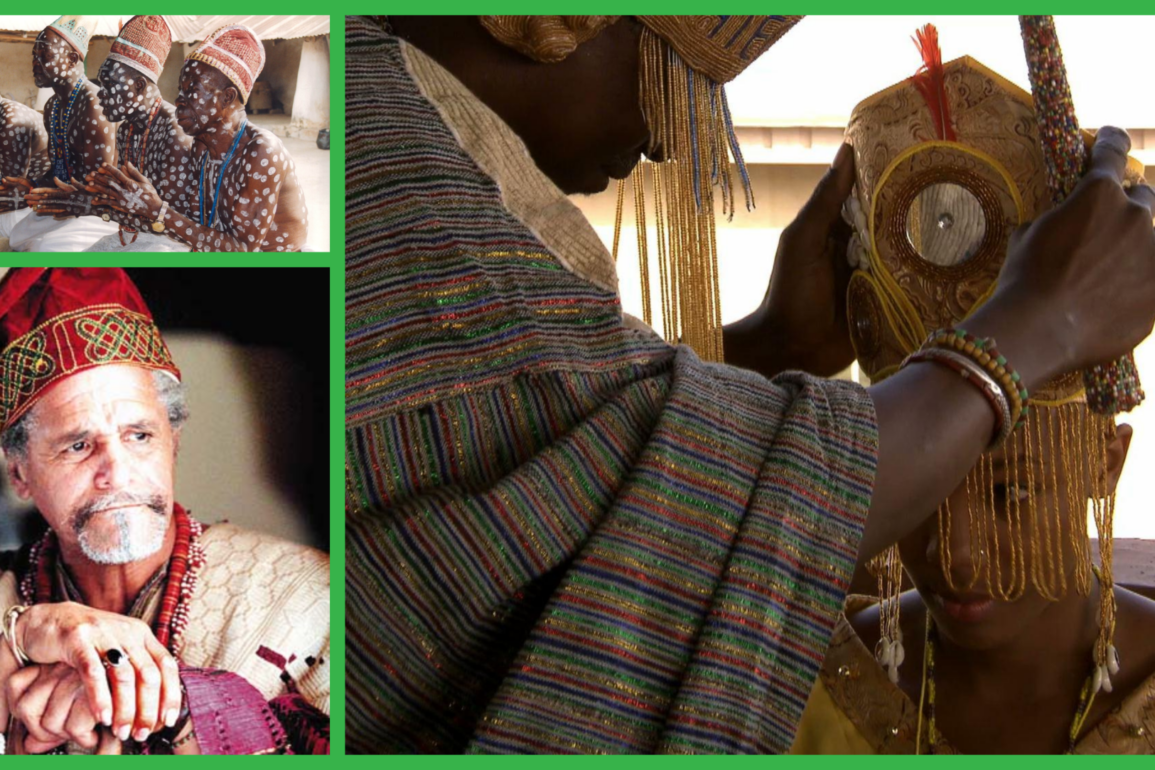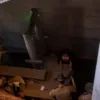This is the first in a series on women who were leaders of various African Diasporic spiritual traditions who are now our ancestral mothers. Their work left immense legacies in Philadelphia, the nation and the world. “Our Spiritual Mothers” series tells the history of women who made significant contributions to spiritual systems and religious communities.
This series begins with: Iya Lois and Iya Laura Fernandez, who brought the Yoruba spiritual tradition to Philadelphia’s African American community. Okomfohemaa Nana Akua Oparebea, the high priestess of the Akonnedi Shrine in Larteh, Ghana established Akan healing shrines in the U.S. Mother Elizabeth Juanita Dabney, a member of the Church of God in Christ (COGIC) is renowned for her healing ministry at the Garden of Prayer. Lastly, the series features the work of Gro Mambo Angélá Noványón, Idizol, founder of LePerisytle Haitian Sanctuary and the National African Religion Congress/NARCWorld, who is world-renowned for spiritual healing.
From Africa to the New World
The history of the Yoruba spiritual tradition in the New World begins with the advent of the Trans-Atlantic Human Trade in the Americas. Tens of thousands of the Yoruba people of West Africa were among those enslaved and sold throughout the Caribbean, South, Central and North America.
Just how did Yoruba culture spread in the New World? The Yoruba brought it to the plantations and passed it to their descendants. The tradition was established and survived as Lucumi in Cuba; Shango Baptist in Trinidad-Tobago and Grenada; as Ettu in Jamaica; Kélé in St. Lucia and Candomble in Brazil. It also flourished as Santeria in Puerto Rico, Venezuela, Dominican Republic and Mexico.
Catholic enslavers – Spanish, Portuguese and French – tried to indoctrinate their Africans captives with Christianity, but didn’t force them to accept it. As a result, enslaved Africans in the Caribbean, Central and South America were able to syncretize their native spirituality in order to maintain it.
However, in North America, British were dominate and were members of Protestant denominations that don’t worship saints, making it hard to conceal African traditions. The only place in the U.S. where African spiritual traditions were maintained and openly practiced was Louisiana and Southeast coastal U.S. Voodoo was a term that often clumped a variety of spiritual systems in southern Louisiana practiced by Black people, but in general, is a combination of Native and African traditions that were hidden through the iconography and saints within imposing Catholic church.
In the Southeast coastal U.S., enslaved Africans developed. It’s a mixture of spiritual traditions from the Igbo, Yoruba, Fon and Ewe people of West Africa, the Bantu-Kongo people of Central Africa, indiginous American practices and Christianity. Common Hoodoo practices among Gullah-Geechee people from North Carolina to Florida include divination, ring shout, herbal medicine, ancestor veneration, water rituals and conjuring or root work. Conjuringor root work had an important role in the lives of the enslaved long before Christian conversion of Africans in the South. In addition to solving spiritual and civic matters, conjurers were known as the healers of the community. These practices spread to other African American communities nationwide due to migration from the South. The Gullah language – a mixture of African dialects – and the culture, are still maintained in the South Carolina Low Country.
| Watch: Orisa in the Ghetto
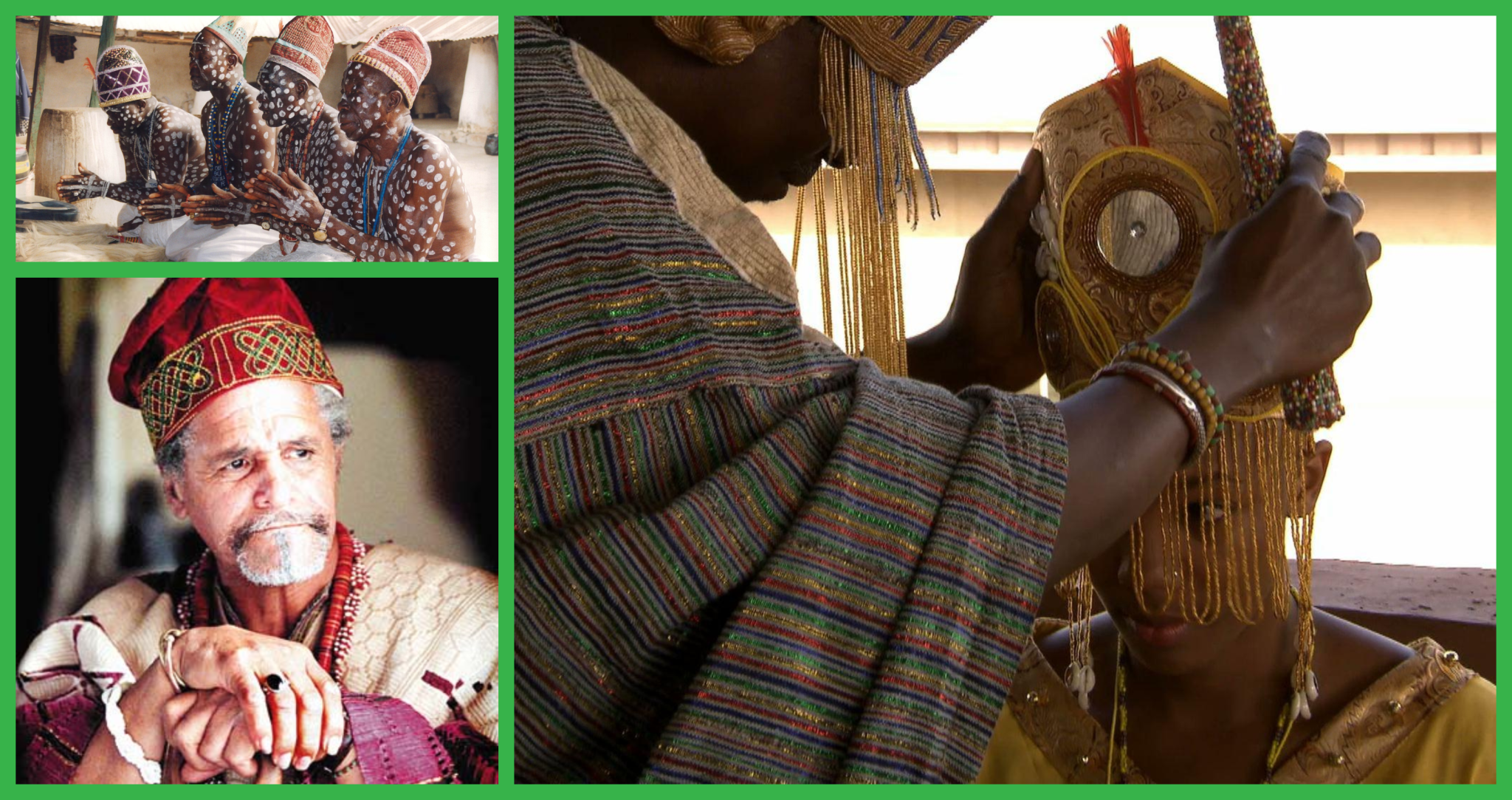
In the U.S., people practicing variations of the Yoruba spiritual tradition are predominately Latinos who inherited it from their African ancestors on the plantation who passed it down. Many of them can trace back to their direct ancestors who were practitioners on the plantation. African Americans accessed the tradition through Cubans in the U.S. The first known African Americans, Walter “Serge” King, renamed, Oba Oseijeman Adefunmi I, and Cristobal Oliana were initiated into the priesthood in Matanzas, Cuba in 1959.
The tradition became rooted in Philadelphia amongst African Americans beginning in the early 1960s as a result of the divinely-inspired paths of Laura and Lois Fernandez who brought the Yoruba culture to the African American community in various ways.
The sisters were among 12 children born to Ebenezer Fernandez and Melissa White Fernandez in South Philadelphia. Although they were a Christian family, in the early 1960s Laura and Lois began to embrace African spirituality and culture. They became cultural trailblazers of the natural hair movement when they both cut-off their straightened hair and went completely natural. During this time, African Americans also began to explore the spiritual aspects of Black Power.
The sisters attended a lecture with award-winning journalist and longtime friend Playthell Benjamin. Unbeknownst to Laura at the time, the lecture featured her future husband, Chief Obalumi Ogunseye, one of the early leaders of the African American Yoruba Movement in Harlem. A mentee of renowned Black Nationalist and reparations activist Queen Mother Moore, the chief established a Yoruba Temple in South Philadelphia in the early 1960s when he moved to Philadelphia. It was Baba Obalumi who exposed the sisters and countless other African Americans to Yoruba culture.
In 1962, after having met Chief Obalumi and joining the movement, Laura received the Yoruba name Omowunmi Ogundaisi from His Royal Highness Oba Adefunmi I, founder of the Yoruba Temple of Harlem in 1960.
A close friend and comrade of Chief Obalumi, in 1970, Oba Adefunmi I founded Oyotunji Yoruba Village in Beaufort County, South Carolina — an authentic Yoruba village. There, he led African Americans in the Yoruba spiritual tradition as practiced in Nigeria. In 1972, he was initiated a babalawo in the Ifa priesthood by the Oluwa of Ijeun in Abeokuta, Nigeria. He also was proclaimed Alase (Oba-King) of the Yoruba of North America in 1972. Oba Adefunmi I is considered the “Father of the African Cultural Restoration Movement” in the U.S. He transitioned in 2005.
On New Year’s Day, 1965, Iay Omowunmi and Chief Obalumi married in South Philadelphia. The following year, both were initiated into the priesthood. Together, they embarked on building a life centered in Yoruba culture, education and social activism. They raised seven children in the Yoruba culture, two of whom are priests.
⚈ ⚈ ⚈ ⚈ ⚈ ⚈
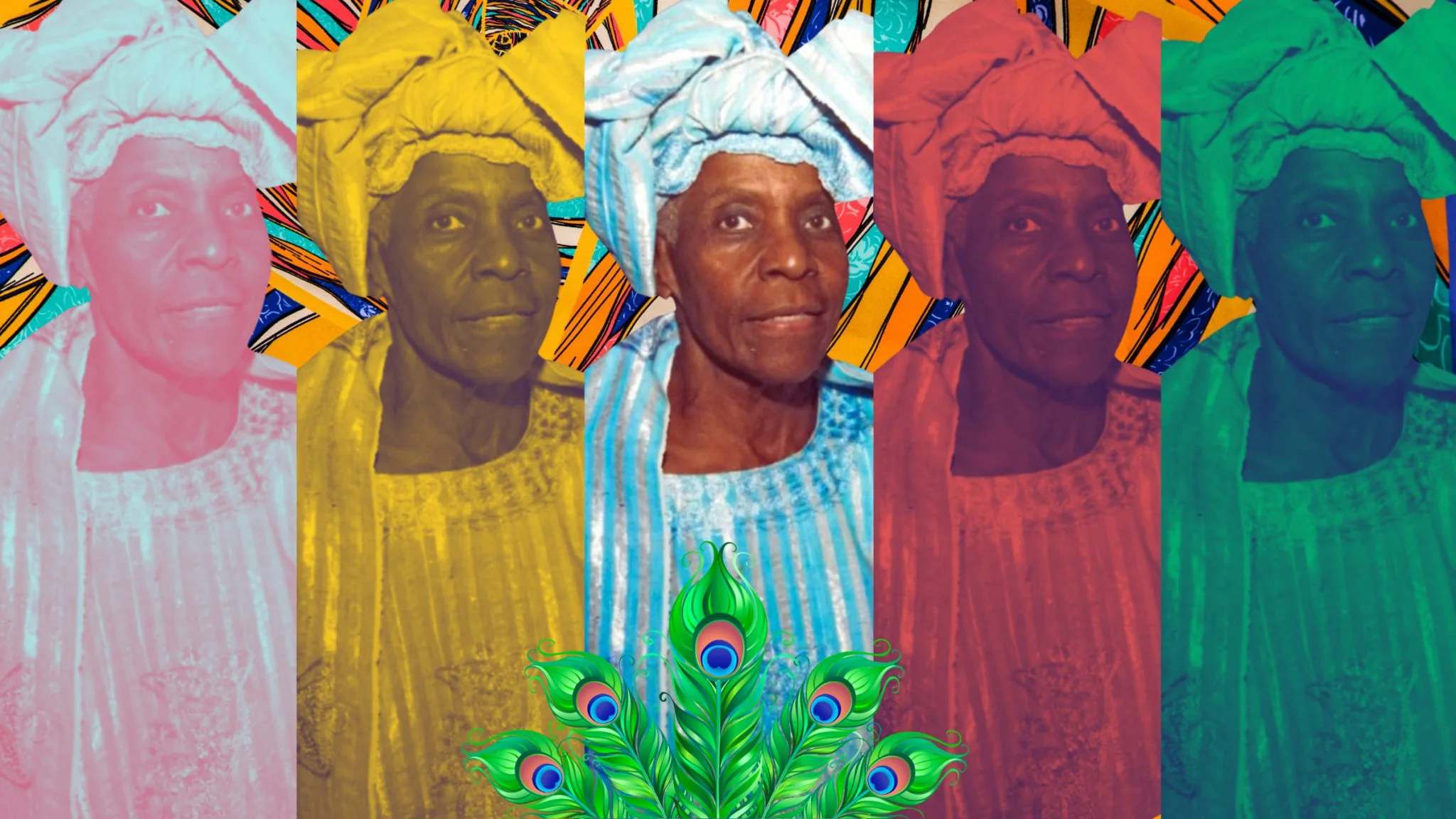
Bringing “the culture” to the community
Like many indigenous spiritual traditions worldwide, the Yoruba tradition is three-tiered. In Yoruba spirituality, reverence for the Universal Creative Force, the one God, known as Olódùmarè is first and foremost. The Angelic Forces known as Orisha, are manifestations of Olódùmarè that serve as intermediaries who guide humans towards their destinies. They are not gods. Last, but not least are the Egun, ancestors who watch over their family members and are acknowledged in every initiation ritual. Reverence for the Egun is most important because we all came to Earth through our Egun.
Access to African spiritual traditions require a priest/godparent to mentor a person to teach and initiate them through the various levels of membership. You can’t learn the tradition from books, websites or declare yourself a practitioner. Ritual initiation witnessed by a community of priests is required.
Ordained as an Iyalorisha (female Orisha priest) of Osun, the Orisha of fresh water and creativity, Iya Omowunmi also was the second African American priestess in the nation to be initiated into the Yoruba religious tradition of Ifa. Over the course of her life, she provided spiritual consultation and support to hundreds of people. Together, Iya Omowunmi and Baba Obalumi, now a babalawo and chief, increased the collective consciousness and awareness of African spirituality among African Americans throughout the Philadelphia region. With children and grandchildren initiated and raised in the culture, some consider the family the root of the practice of the Yoruba spiritual tradition among African Americans in Philly.
Baba Omiyinka Moore, a babalawo, reflected on the contribution of the family to African culture in Philadelphia. “I’m extremely happy that they went back to the ancestral ways — the ways before Christianity came to Africa, and they did a good job. They spurred us going back to our African ways. For Odunde to be what it is today, they did their job and now we have to carry it on. However, we have to wake our Black folks up.”
A seasoned educator, Iya Omowunmi’s first teaching position was at Landreth Middle School in South Philadelphia. She subsequently taught at George W. Childs and McCall Elementary Schools in the early 1960s. She also taught at Bache-Martin Elementary School and PAS School in North Philadelphia from 1972 to 1982. In 1987, after having spent three years teaching at A.S. Jenks Elementary School, Iya decided to retire temporarily to focus on raising her children. However, she remained involved in the community as a co-founder of Women Gather, and co-founder of Yoruba Egbe which was established in 1985. Yoruba Egbe not only served as a temple for spiritual practice, but also served as a place for academic tutoring and GED preparation.
During this time she authored, and Chief Obalumi, also an educator and artist, illustrated Baba Speaks of the Gods, a children’s book about the Orishas. It wasn’t until 1990 that Iya decided to return to the Philadelphia public school system, as an English teacher at Barrett Middle School. While at Barrett, she garnered the reputation of being a “tough, but fair and caring” teacher amongst her students. She taught at Barrett for over 10 years before retiring again.
Iya joined the board of Point Breeze Civic Association, a South Philadelphia community-based organization founded by her older sister Sylvia Green. She became the board chair for the organization and led the growth in organizational funding and community programming in the Point Breeze section of Philadelphia. Iya also led the organization’s launch of the Junkanoo Festival, an annual Bahamian/Caribbean-themed street festival held on Point Breeze Avenue, as well as the development of the association’s building located at 1517 S. 22 Street.
In 2002, Iya was asked to consult with the newly-formed Germantown Settlement Charter School, where she trained new teachers on everything from curriculum and classroom set-up, to student engagement. During her tenure at Germantown Settlement, the school was divided into a middle and high school, at which point Iya was asked to take the position of assistant principal. It was only a short time before being asked to take on the assistant principal position that Iya had received her third master’s degree in educational administration and principalship from Cheyney University.
In 2005, she co-founded Ijoba Shule (Sovereignty School), an Afrikan-centered educational institution alongside her son Sekou Olayinka. She served as the school’s principal and lead instructor until 2015, when she retired permanently at the age of 75. Family members remember Iya saying from time-to-time, “I wish I would’ve done this sooner.”
Iyatunde “YeYe” Garrett reflects on her mother’s legacy. “When I think of my Iya’s legacy, I think of her and my father being the first [African American] initiates into the priesthood of Orisha in the city of Philadelphia. I think of people coming into our home and feeling as if they were in an African museum. I think of my mother bringing the culture to the people, and leaving an indelible mark on children, adults, and the overall Philadelphia community. I think of my mother’s steadfast loyalty and belief in the beauty of Orisha and the culture of the Yoruba people. It was not just a moment for her, it was a life changing movement that she lived every day.”
Okewa Garrett, YeYe’s son, speaks of the educational and spiritual contributions of his grandmother. “The legacy that my grandmother left was very influential and important to the city of Philadelphia. She did the work that a Black woman is supposed to do without knowing that she was supposed to do it, but she did it anyway.”
“The spiritual, she brought that to the city,” said Okewa, the eldest grandchild. “The educational, she brought that understanding, she brought that teaching and knowledge. Her knowledge was infinite. Talking about educators! When I think about educators, I think of my grandmother. She is the only educator I know. It’s one thing to be a teacher, it’s another to be an educator. My grandmother is the truest form of an educator that you could come in contact with. Her influence in this city was great, it was unmatched. A lot of people got their guidelines and techniques from my grandmother, whether it was spiritual or educational. They got a lot from that lady!”
He expressed amazement at the contributions and influence of his grandmother and Aunt Lois. “It blew my mind! There was a lot of history within the timeline when they were growing up and doing the things that they did. It was beautiful. My family is incredible!”
⚈ ⚈ ⚈ ⚈ ⚈ ⚈
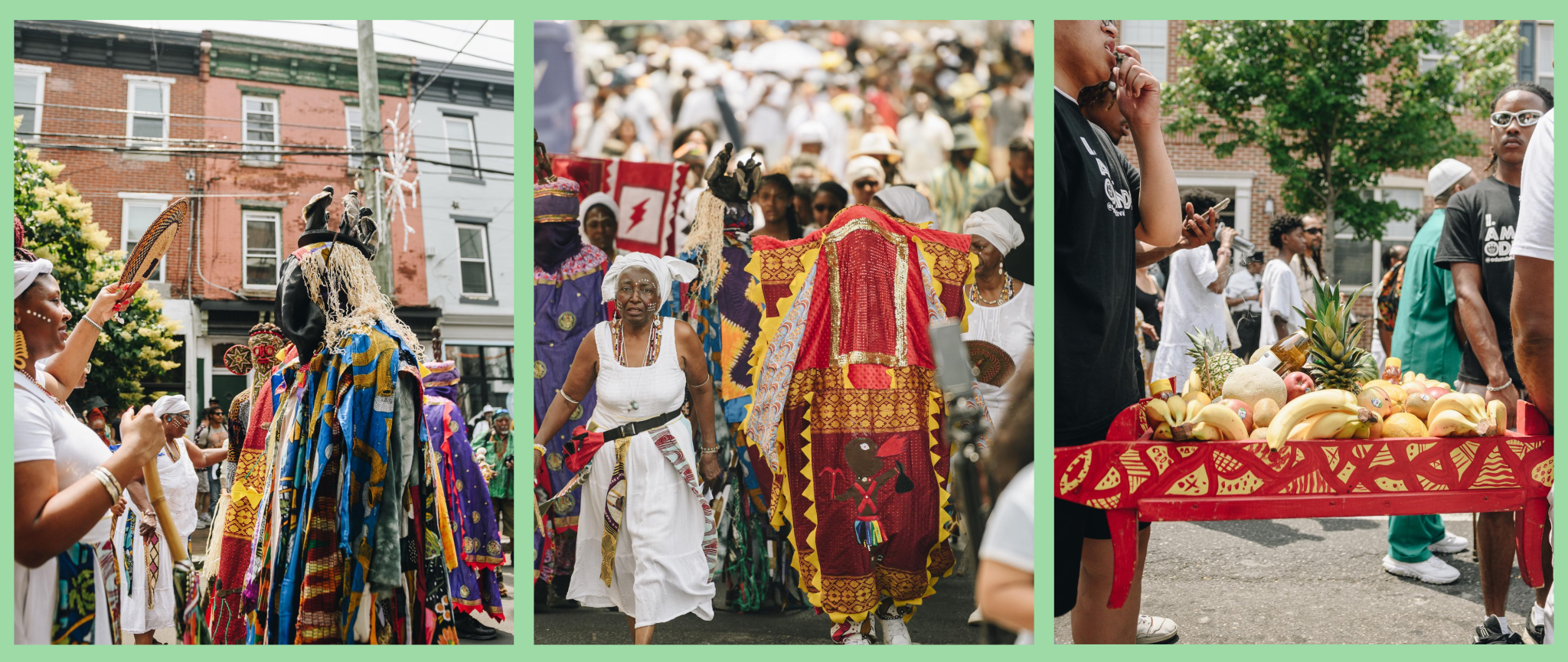
Take it to the river: ODUNDE
Lois was also steeped in Yoruba culture and was initiated into the priesthood years later as a priestess of Yemaya, the Orisha known as the mother of the world. In the mid-1960s, in an effort to increase cultural awareness among African Americans, Lois opened the Uhuru Hut, a boutique offering Afrocentric clothing, jewelry and fine art at 500 South 23rd Street with her sister Sylvia Green, cousin Gerri Fernandez and friend Ruth Arthur.
In the early 1970s she traveled to Oshogbo, Nigeria and attended the Osun Festival with Nigerian artist Twins Seven-Seven who spent time living and working in Philly. Held annually in honor of Osun the Orisha
of fresh water, the festival draws devotees from throughout the world. Inspired, upon her return to Philly Lois and Arthur organized the “Osun Festival” in 1975 which later evolved into the Odunde Festival. Their goal was to awaken awareness of African culture and Black pride.
Willis Durham and other young African Americans participated in Philly’s Oshun Festival when it was still a block party before it became Odunde. “We were at some of the first Odundes when it was a block party,” he recalled. “Obalumi, who was the father figure, had contact with Oyotunji Village in South Carolina. They were some of the first African American practitioners. We were interested in African culture and the drum brought us to it. We ended up drumming at the block party. We participated in the first celebration for Osun when there wasn’t even a stage.”
Now a babalawo known as Baba Egunsanyaa Ifasaanu, Durham speaks on the frame of mind of most African Americans back then. “People didn’t want to hear that they were Africans. They didn’t want to be African. Some still don’t. We faced that back in the day. It was unheard for anyone to even want to go to Africa. They {the Fernandez Sisters} have brought this to a point of people now wanting to travel to Africa.”
The first procession to the Schuykill River began at Iya Lois’s South Philly home. It included the extended family, iconic choreographer Arthur Hall and his dance troupe, and a few others. Baba Obalumi officiated with the assistance of Iya Omowunmi.
Many in the community met the idea of the city allowing an African procession to the river and festival with skepticism. Now called Odunde (Happy New Year in the Yoruba language), the 48 year-old annual festival begins with a procession led by priests over the South Street Bridge to the river where devotees leave offerings of fruit, honey and flowers to thank Osun for her sweet waters and ask for blessings in the coming year. Held annually on the second Sunday in June, Odunde is the largest and longest-running African festival in the nation. Its authentic African marketplace attracts 500,000 people to Philadelphia from around the world and contributes over $20 million to the city’s economy.
⚈ ⚈ ⚈ ⚈ ⚈ ⚈
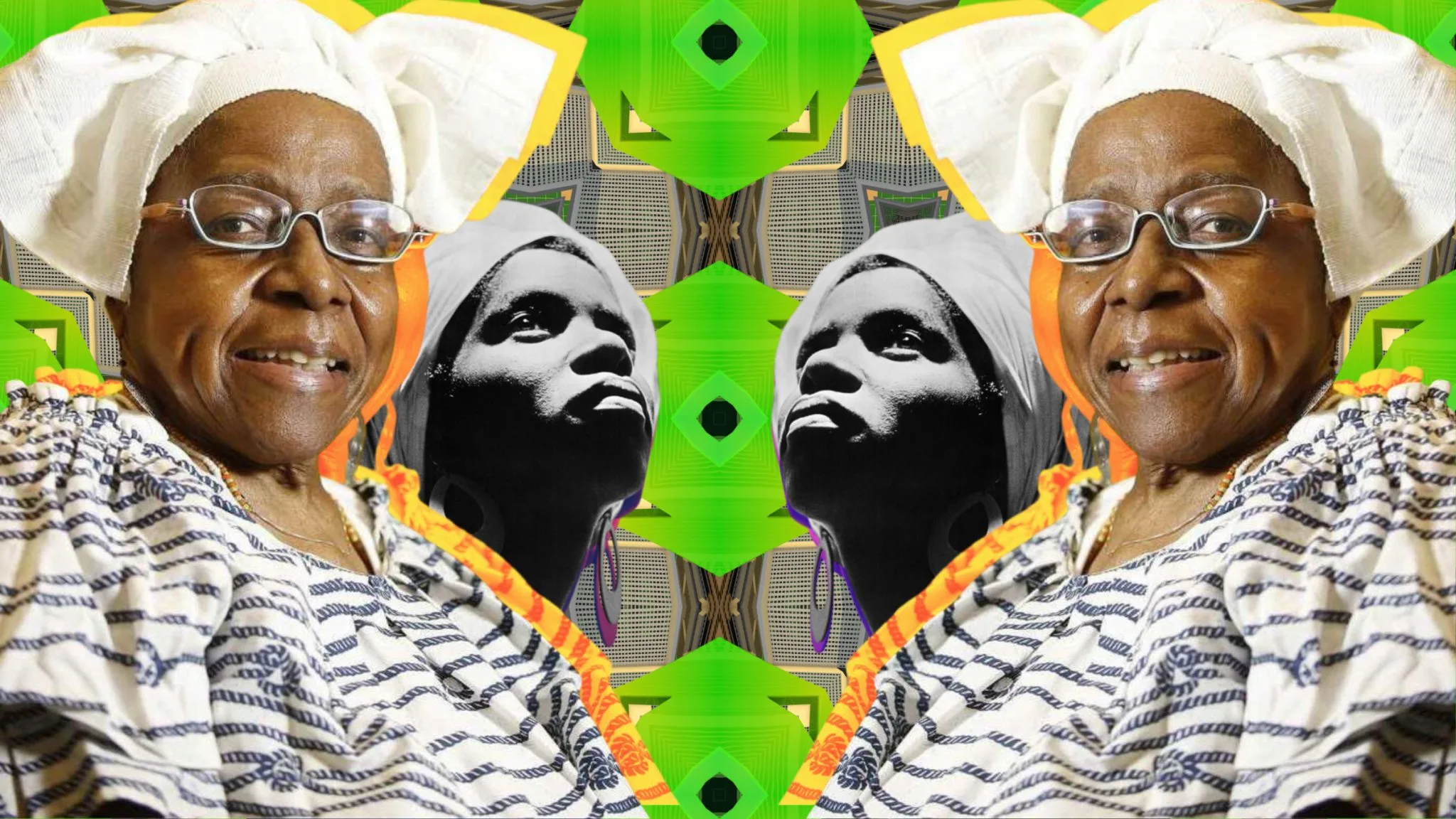
Cultural activism
South Philly began rapidly gentrifying in the 1980s so, Iya Lois established ODUNDE Inc. in 1983 as a nonprofit to support the festival. She served as president of ODUNDE Inc. with her daughter, Oshunbumi Fernandez-West as executive director.
Although racist gentrifiers tried removing the festival from the neighborhood, she stood firm. In order to keep African American seniors from being pushed out of her South Philly neighborhood, she worked with city and state officials to raise funding to build Osun Village. Opened in 2010, the four-story complex for low-income seniors also serves as Odunde’s headquarters. Now CEO of Odunde, Inc. since 1996, Fernandez –West has expanded the festival into a week of activities and branded Odunde 365 which provides African-centered activities for youth year-round.
“Iya Lois Fernandez was a powerful influence in establishing Odunde as an African holiday for Africa’s children in America,” stated Iya Omomola Iyabunmi, one of the founders of Philadelphia’s Women’s Sekere Ensemble. “The intention was for Africa’s children to have a holiday without government sanction, way before Martin Luther King Day was established, that we could be proud of. Every ethnic group here in America has their own holiday. Iya Lois did that for us Africans born in America and I give thanks to her for this great thing that she did.”
Durham agreed wholeheartedly. “They carried it {the Osun Festival} forth from a block party to an international festival. Thousands of people come to Philadelphia for the Odunde Festival. It’s been a great success.”
Both Fernandez sisters were activists. In 1967, Lois, a single-mother, filed a lawsuit in federal court and after years of fighting was successful in having the designation “illegitimate” removed from Pennsylvania birth certificates of children born to unmarried parents. In the late 1970s, the sisters joined the Parents Union for Better Education in Philadelphia that held weekly vigils at the Liberty Bell to bring awareness and spark political action to stop the murder of Black children in Atlanta, Georgia. The vigils that were held every Sunday for months made both local and national news.
In 1982, the sisters were consultants for the Philadelphia Museum of Art’s groundbreaking Treasures of Ancient Nigeria, a first of its kind exhibit in partnership with the Nigerian National Museum. The exhibit lasted for over four months and consisted of Nigerian art, performances, speakers and an Afrikan marketplace.
The Fernandez Sisters believed strongly in education. Lois earned an associate degree in applied science from the Community College of Philadelphia, and a master’s in urban education from Antioch University. A social worker by trade, she earned parent education certification at St. Louis University, certification for AIDS training from the AIDS Activities Coordinating Office, and certification in arts management from the
University of Massachusetts. Later in her career, she became an adjunct faculty member at Lincoln University in their master’s degree program in human services. She was also an author. In 2016, Lois published Recollections (part one) a recollection of her early life in South Philly in the 1930s, 40s and 50s, with folklorist Debora Kodish.
Laura was the first of her siblings to attend college and received a bachelor’s degree in education from Cheyney University. Upon graduating, she began her long and illustrious career in education teaching in the Philadelphia Public School System. She went on to earn a master’s degree from the University of Pennsylvania in 1964 and a second master’s degree from Antioch University in 1981.
“Iya believed in lifelong learning,” said her daughter Iyatunde. “But I will conclude that my Iya’s greatest legacy is the love of this spirituality that is displayed in her children, whom she always referred to as her greatest accomplishment.”
Fernandez-West concurred. “I thank God every second for allowing me to be the one and only daughter of the iconic Lois Fernandez. It is the gift that keeps on giving. She is now an ancestor who watches over and protects me 24 hours, 7 days and 365 days a year.”
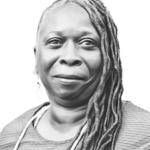
Without a doubt, the Fernandez Sisters left an indelible legacy in the City of Philadelphia. Iya Lois Fernandez transitioned on August 13, 2017 at the age of 81. Laura Fernandez Garrett also known as Iya Omowunmi Ogundaisi, made her transition on February 20, 2023 at the age of 82.
◛◚◛◚◛◚◛◚◛◚◛◚◛◚◛◚◛◚◛◚◛◚◛◚◛◚◛◚◛◚◛◚◛◚◛◚◛◚◛◚◛◚◛◚◛◚◛◚◛◚◛◚◛◚◛◚◛◚◛◚
Linguistic notes on terms used in the story: Baba is the Yoruba word for father and also is a title for male priests. Iya (ee-ya) is the Yoruba word for mother and is also a title for female priests. Oba is the Yoruba word for king. Ifa is the ancient Yoruba divination system that is used by high priests known as babalawos. Oshun is spelled several ways: Osun (Yoruba), Oxum (Portuguese), Ochun (Spanish) and Oshun (English).


